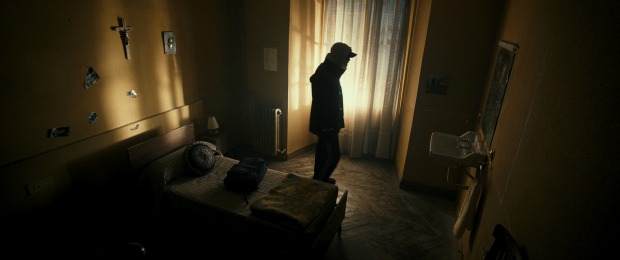The Imposter
Truth is stranger than fiction, as Lord Byron once wrote. But fiction was invented because, most of the time, truth is either too boring or painful.
Plot summary
Nicholas Barclay, a 13 year-old Texas boy who vanishes without a trace. Three and a half years later, staggering news arrives: the boy has been found, thousands of miles from home in Spain, saying he survived a mind-boggling kidnap ordeal. His family is ecstatic to have him back no matter how strange the circumstances – but things become far stranger once he returns to Texas.

Truth is stranger than fiction, as Lord Byron once wrote. But fiction was invented because, most of the time, truth is either too boring or painful. So on the odd occasion when truth is actually very, very strange indeed, it’s destined to be made into a feature film at a single shake of a lamb’s tale. Thus, when documentary-maker Bart Layton stumbled upon this fascinating story of a Frenchman who in 1997 convinced a Texan family he was their missing 16-year-old son Nicolas Barclay, he could probably scarcely believe his luck that no one had documented the story on film before.
The 2008 documentary Man On Wire, concerning daring Frenchman Philippe Petit’s illegal tight-rope walk between the twin towers of the New York Trade Center in 1974, shares an executive producer with The Imposter in Simon Chinn. Like that film, this real-life tale of deceit and denial features a charming, charismatic French-speaking interview subject in Frederic Bourdin. But then, to persuade a Texan family that you are their blonde-haired, blue-eyed boy instead of a 23-year-old dark-haired and brown-eyed French-Algerian, you’d have to be charming at the very least.
And Bourdin is more than charming – he’s also cunning. As such, like Petit in Man On Wire, he is the driving force behind the film’s narrative. At one moment you trust him, the next you’re not so sure, but all the while he manages to remain fascinating and likeable despite the fact that he has essentially tricked the vulnerable, grieving Barclay family into taking him in as their son. But is he really just a fraudster here? Or are the family knowingly trying to fill a void and hide a sinister secret? Director Bart Layton lets the story unravel gradually like a murder mystery, with all the twists and turns left in so that no-one – not even the Barclays – can be entirely trusted.
Interview footage with Bourdin, the Barclay family and various investigators involved in the case is interspersed with dramatic, blurry reconstructions by actors. Aside, that is, from some fascinating genuine home video footage of Bourdin arriving at the airport to meet his ‘new’ family the Barclays for the first time, they all the while believing that he is their Nicholas. With Bourdin hiding much of his face and newly-bleached hair, it’s amazing that the family nevertheless immediately embrace him – “I washed their brains,” Bourdin, now 37, wryly notes, recalling the events more than a decade later.
But for all Bourdin’s cunning, it’s clear throughout that he can’t believe his luck the Barclay’s are taken in by his story of kidnapping and torture, which he says is responsible for his disappearance and change in appearance. And it’s at this point, when Bourdin is shown getting off the plane, that The Imposter becomes more than a gripping, real-life noir thriller – it becomes an exploration of the power of human belief. Bourdin, whose parents had died while he was young, says he wanted to experience the warmth of the family and childhood he never had, and he takes on the role of Nicholas with panache – trying to mask his French accent and even attending Nicholas’s school for a few months. If the Barclay family, too, just wanted their beloved Nicholas back, you can’t help but imagine there was a short period of comfort for both parties before the private investigators smelt a rat. After all, even the strangest truth can still be too boring or painful, whereas fiction can be whatever you want it to be.











COMMENTS